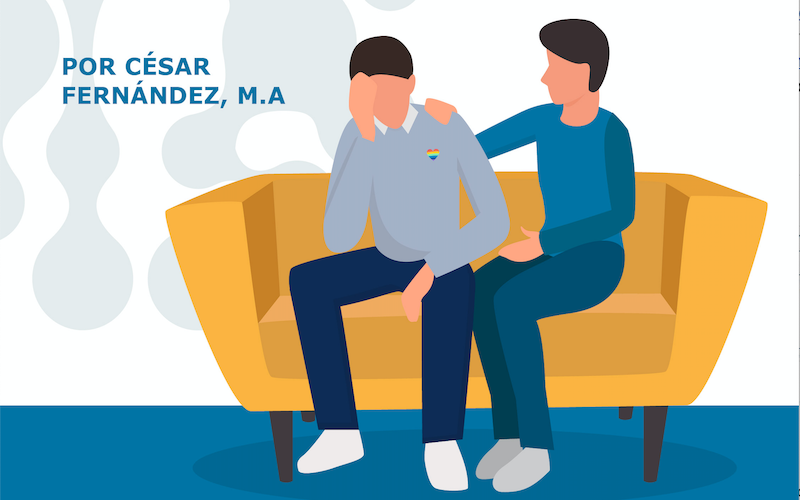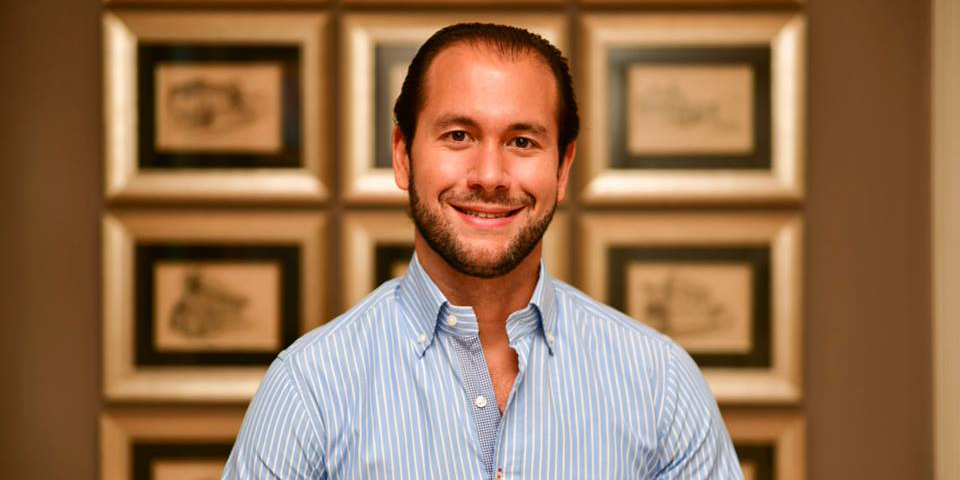
Homosexuality, Rejection and Mental Health 17-05-2020
Por: César A. Fernández
Today marks the International Day against Homophobia, as on May 17, 1990, the World Health Organization (WHO) removed homosexuality from its list of mental illnesses, recognizing it as one of the different sexual orientations that a human being can exhibit.
There are families who come to consultation in crisis because one of their members has just informed them that he is homosexual. In our society it is still common that, faced with this news, some parents engage in behaviors of rejection, threat or punishment towards their family member. “I'm not going to accept that in this house,” “you disgust me,” “you're dead to me.”
These phrases, which tend to be spoken out of fear, denial and misinformation, are sometimes a desperate attempt by parents to get their children to change. But these behavioral responses have NO impact whatsoever on your child's sexual orientation; but they do have a significant impact on your child's mental health.
An individual rejected by his family for his sexual orientation tends to exhibit increased symptoms of depression and anxiety, increased risk of substance abuse, and more suicide attempts (Puckett et al., 2014). In addition, he tends to present with self-esteem difficulties, internalized homophobia (self-hate for his orientation), and increased risky sexual behaviors (Katz-Wise et al., 2016).
Conversely, family acceptance and support are associated with higher self-esteem, less substance abuse, and lower risk of depression and suicide (Ryan et al., 2010).
You may not understand your child's sexual orientation. You may not feel ready to talk openly about it. Maybe their sexual orientation conflicts with your religious beliefs. Perhaps it will be very difficult for you to understand him, accept him and not judge him. All this is valid and you can explore it with a therapist. But if your reaction to the situation is one of emotional support, of interest in knowing what your child is feeling, of openness and honesty, then you will be protecting your child from significant mental health difficulties, and you will lay the foundations for a healthy relationship with your child.
You don't know how to do this? I leave you an example phrase: "This is difficult for me to understand and I do not know if I can fully accept what you are expressing to me; but I am here for you, you are my son/daughter and I care about you, and I want you to always be clear with me."
References:
Puckett, Jae & Woodward, Eva & Mereish, Ethan & Pantalone, David. (2014). Parental Rejection Following Sexual Orientation Disclosure: Impact on Internalized Homophobia, Social Support, and Mental Health. LGBT Health.
Katz-Wise, S. L., Rosario, M., & Tsappis, M. (2016). Lesbian, Gay, Bisexual, and Transgender Youth and Family Acceptance. Pediatric clinics of North America, 63(6), 1011–1025.
Ryan C, Huebner D, Diaz RM, Sanchez J. Family rejection as a predictor of negative health outcomes in white and Latino lesbian, gay, and bisexual young adults. Pediatrics. 2009;123(1):346–352. doi: 10.1542/peds.2007-3524
Newcomb ME, Heinz AJ, Mustanski B. Examining risk and protective factors for alcohol use in lesbian, gay, bisexual, and transgender youth: a longitudinal multilevel analysis. J Stud Alcohol Drugs. 2012;73(5):783–793.
Ryan C, Russell ST, Huebner D, Diaz R, Sanchez J. Family acceptance in adolescence and the health of LGBT young adults. J Child Adolesc Psychiatr Nurs. 2010;23(4):205–213.


